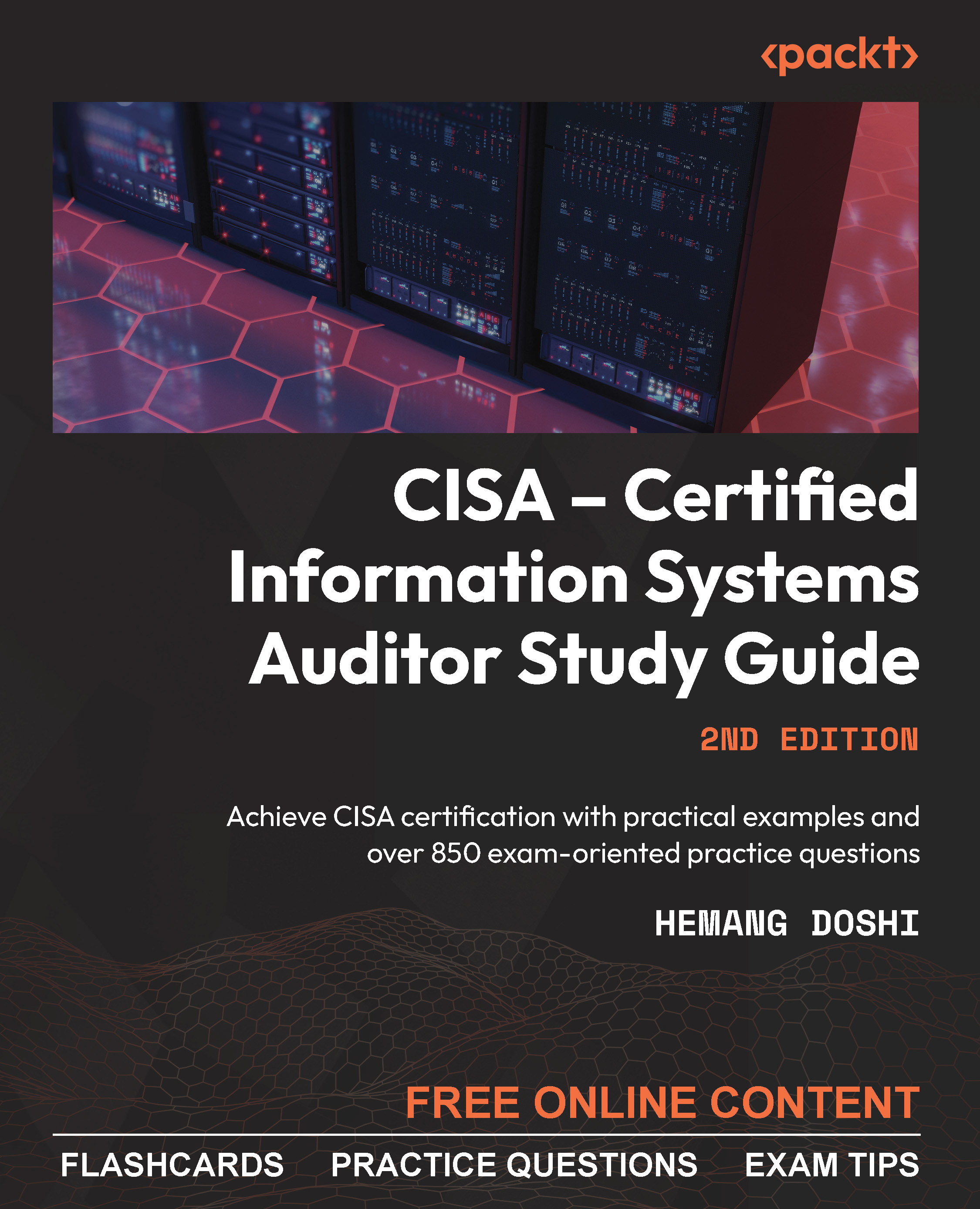-
Book Overview & Buying

-
Table Of Contents

CISA – Certified Information Systems Auditor Study Guide - Second Edition
By :

CISA – Certified Information Systems Auditor Study Guide
By:
Overview of this book
With the latest updates and revised study material, this second edition of the Certified Information Systems Auditor Study Guide provides an excellent starting point for your CISA certification preparation. The book strengthens your grip on the core concepts through a three-step approach. First, it presents the fundamentals with easy-to-understand theoretical explanations. Next, it provides a list of key aspects that are crucial from the CISA exam perspective, ensuring you focus on important pointers for the exam. Finally, the book makes you an expert in specific topics by engaging you with self-assessment questions designed to align with the exam format, challenging you to apply your knowledge and sharpen your understanding.
Moreover, the book comes with lifetime access to supplementary resources on an online platform, including CISA flashcards, practice questions, and valuable exam tips. With unlimited access to the website, you’ll have the flexibility to practice as many times as you desire, maximizing your exam readiness.
By the end of this book, you’ll have developed the proficiency to successfully obtain the CISA certification and significantly upgrade your auditing career.
Table of Contents (14 chapters)
Preface
Chapter 1: Audit Planning
 Free Chapter
Free Chapter
Chapter 2: Audit Execution
Chapter 3: IT Governance
Chapter 4: IT Management
Chapter 5: Information Systems Acquisition and Development
Chapter 6: Information Systems Implementation
Chapter 7: Information Systems Operations
Chapter 8: Business Resilience
Chapter 9: Information Asset Security and Control
Chapter 10: Network Security and Control
Chapter 11: Public Key Cryptography and Other Emerging Technologies
Chapter 12: Security Event Management
Other Books You May Enjoy
